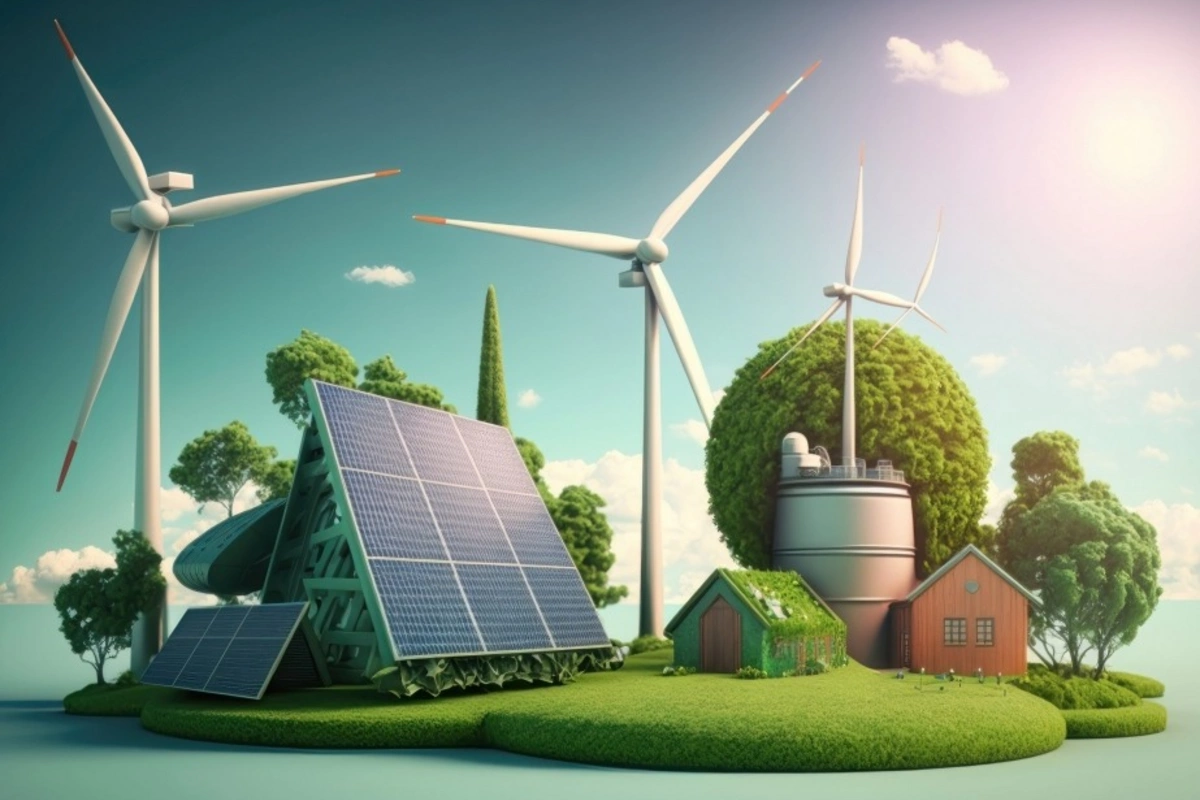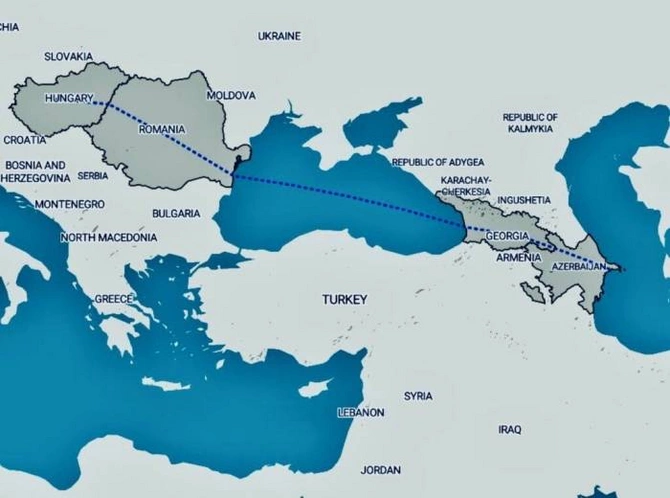
Photo: iStock
News.Az published an opinion piece highlighting green energy opportunities in Central Asia. The Caspian Post reprints the article.
The regions of Central Asia and the Caucasus are on the brink of significant transformations in the energy sector. Representatives from Azerbaijan, Kazakhstan, and Uzbekistan have signed a foundational agreement as part of a groundbreaking project to establish a "Green Energy Corridor" to Europe.
The agreement was signed by the operators of the three countries' main power grids - Azerenerji (Azerbaijan), KEGOC (Kazakhstan), and National Grids of Uzbekistan (Uzbekistan). The primary objective of the agreement is to enhance electricity trade opportunities, in line with new global initiatives such as the European Union's "Green Deal" - a comprehensive plan to achieve net-zero greenhouse gas emissions and minimize environmental pollution by 2050.

Photo: The Ministry of Energy of Azerbaijan
As part of the initiative, the participants agreed to establish a joint venture in Baku to oversee the project's implementation.
The Italian company CESI will serve as a consultant, tasked with developing the project's feasibility study.
From 2030 onward, Uzbekistan plans to export surplus "green" electricity generated within the country to Europe via Kazakhstan and Azerbaijan. This strategic move is expected to significantly strengthen energy cooperation in the region and contribute to the development of a sustainable energy infrastructure.
The creation of the "Green Energy Corridor" was first discussed in July when Uzbekistan, Azerbaijan, and Kazakhstan signed a protocol to integrate their energy systems and form the "Central Asia - Azerbaijan - Europe" corridor. Additionally, a memorandum of cooperation was signed earlier in the spring at an investment forum in Tashkent.
Furthermore, Azerbaijan plans to lay an underwater cable across the Black Sea, connecting Central Asia, the Caucasus, Europe, and linking the Caspian and Black Seas into a unified energy corridor.

Photo source: Turkic World portal
By 2030, Uzbekistan aims to be capable of exporting 10-15 billion kWh of electricity as part of this ambitious project.
The Green energy corridor project: A pivotal step towards a sustainable energy future
The recent signing of the founding agreement to establish a "Green Energy Corridor" from Central Asia to Europe by Uzbekistan, Kazakhstan, and Azerbaijan marks a strategic milestone, not only for the participating nations but also for the broader region and the global energy landscape. This ambitious initiative is emblematic of the growing global shift towards clean, renewable energy sources, with the dual aim of mitigating environmental impact and meeting carbon reduction targets.
Strategic importance for regional energy security
The creation of a "Green Energy Corridor" will enhance energy security across Central Asia, the Caucasus, and Europe. By integrating the energy systems of Uzbekistan, Kazakhstan, and Azerbaijan, the project opens new avenues for exporting electricity to Europe. This cross-border cooperation will ensure stable, reliable, and mutually beneficial energy exchanges, bolstering the economic resilience and operational efficiency of regional power grids.
At the core of the project is a focus on renewable energy sources-chiefly solar and wind power. Uzbekistan and Kazakhstan possess vast untapped natural resources ideal for generating "green" electricity. Over the past few years, Uzbekistan has made significant strides in the development of solar and wind energy infrastructure, positioning itself as a leader in green energy innovation within Central Asia.
Environmental and economic benefits
The Green Energy Corridor is poised to facilitate the global integration of clean energy, playing a crucial role in reducing carbon emissions and advancing sustainability. This is particularly significant within the framework of the European Green Deal, which targets net-zero greenhouse gas emissions and strives to minimize environmental pollution by 2050. By providing Europe with access to Central Asia's renewable energy, the corridor will accelerate the continent's transition towards greener energy systems.
Beyond its environmental benefits, the project offers considerable economic potential. From 2030 onwards, Uzbekistan plans to export surplus "green" electricity to Europe via Kazakhstan and Azerbaijan. This will open new export markets for the country's energy sector. With projections of 10-15 billion kWh of electricity to be exported annually, the project will generate substantial revenue, enhancing Uzbekistan's economic stability and making it a more attractive destination for foreign investment.
For Azerbaijan, the project envisions the construction of an underwater cable across the Black Sea, connecting Central Asia, the Caucasus, and Europe into a unified energy corridor. This infrastructure development will not only fortify energy networks but also create significant opportunities for advancing energy transmission technology and boosting regional economic growth.
Driving technological innovation and investment
In addition to its environmental and economic advantages, the Green Energy Corridor fosters technological innovation within the energy sector. Leading global firms and experts are engaged in the project's execution. Notably, the Italian company CESI will provide consulting services and develop a comprehensive feasibility study. This will ensure the incorporation of cutting-edge technologies and best practices in the construction of energy infrastructure, including the development of advanced transformer stations and robust energy transmission networks.
A critical component of the project is the establishment of a joint venture in Baku, which will oversee the implementation of the initiative. This collaboration will streamline project execution, optimize resource allocation, and deepen economic ties among the participating countries, enhancing both mutual investment and cooperative efforts.
Future prospects and long-term impact
The Green Energy Corridor project has immense potential for growth and long-term cooperation between Central Asia, the Caucasus, and Europe. Given the region's extensive experience in energy production and transportation, coupled with abundant natural resources for renewable energy, the project is well-positioned for success.
Central to the project's future is its role in shaping new energy infrastructure that will expand energy production and transmission capabilities. By improving connectivity between regions, it will help ensure the long-term sustainability and resilience of energy systems, benefiting not only the project’s participants but also the broader international energy community.
In conclusion, the Green Energy Corridor is more than a regional energy initiative; it is a transformative project that will reinforce energy security, stimulate economic growth, and contribute significantly to global environmental objectives. By setting a precedent for sustainable energy infrastructure development, it has the potential to inspire other countries to reduce their carbon footprints and embrace cleaner, greener energy solutions.
Share on social media